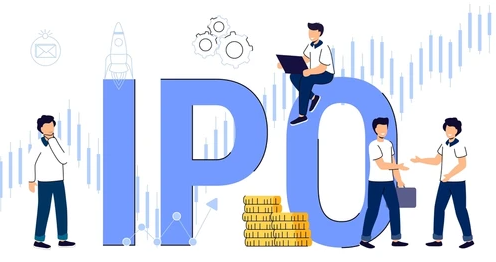Investing in Initial Public Offerings (IPOs) has become an increasingly popular way to make money in the stock market. An IPO marks the first time a company sells its shares to the public, and for many investors, this presents an exciting opportunity to capitalize on the growth potential of emerging companies. In this article, we will explore various strategies on how to make money from IPOs, helping you navigate this complex but rewarding investment landscape.
Understanding IPOs
Before diving into how to make money from IPO, it's essential to understand what they are. An IPO occurs when a privately held company offers its shares to the public for the first time. This process allows the company to raise capital from a broad base of investors. For investors, it provides an opportunity to buy shares in a company with the potential for significant growth.
Steps to Make Money from IPOs
-
Research Thoroughly
- The first step in learning how to make money from IPOs is thorough research. Investigate the company’s business model, financial health, competitive landscape, and growth prospects. Read the IPO prospectus carefully, which provides detailed information about the company's operations, financials, and the risks involved.
-
Evaluate the Underwriters
- Underwriters play a crucial role in the IPO process. Established and reputable underwriters often bring more successful IPOs to market. Look at the track record of the underwriters involved to gauge the potential success of the IPO.
-
Understand the Valuation
- Valuation is key in understanding how to make money from IPOs. Ensure the IPO is not overpriced by comparing the company’s valuation metrics, such as price-to-earnings (P/E) ratio, with its industry peers. An overpriced IPO can limit your profit potential.
-
Consider the Market Conditions
- The overall market conditions can significantly impact the performance of an IPO. Bullish market conditions often lead to higher demand for new issues, while bearish markets may result in subdued interest. Timing your investment with favorable market conditions can enhance your chances of making money from IPOs.
-
Look at the Lock-Up Period
- The lock-up period is a timeframe during which company insiders are restricted from selling their shares. This period usually lasts 90 to 180 days. Monitoring the end of the lock-up period is essential because the influx of shares into the market can affect the stock price. Understanding this aspect can help you decide the best time to buy or sell shares.
-
Invest for the Long Term
- While some investors aim to make quick profits from IPOs by selling shares shortly after they start trading, a long-term approach can also be rewarding. Companies that go public often do so because they are poised for growth. Holding onto shares for a longer period can yield substantial returns as the company expands and increases in value.
Risks Involved
It’s important to note that investing in IPOs also carries risks. The stock price of newly public companies can be highly volatile, and there is no guarantee that the stock will perform well. Additionally, lack of historical data can make it difficult to assess the company's future performance accurately.
Conclusion
Learning how to make money from IPOs involves a combination of thorough research, understanding market dynamics, and having a clear investment strategy. By taking the time to analyze the company, its valuation, market conditions, and the role of underwriters, you can increase your chances of making a profitable investment. Whether you aim for short-term gains or long-term growth, IPOs can be a valuable addition to your investment portfolio.
For more insights and tips on IPO investments, visit SME IPO India.



